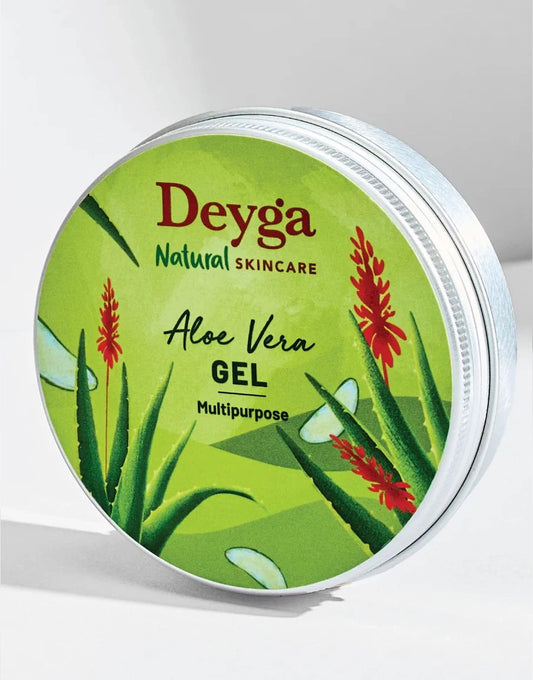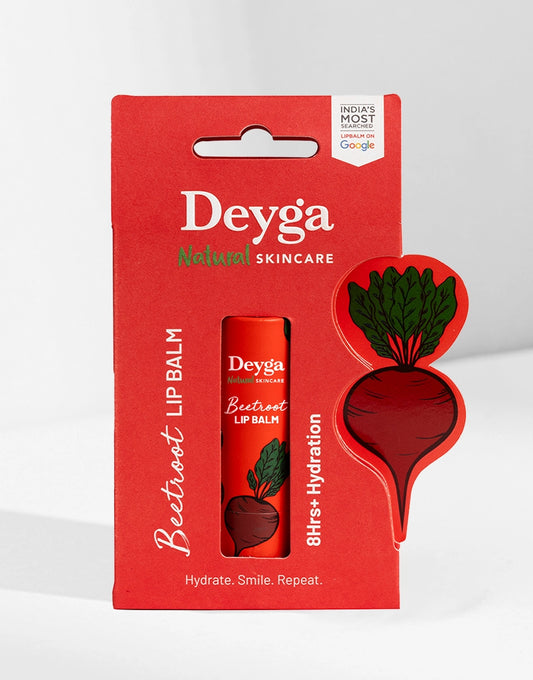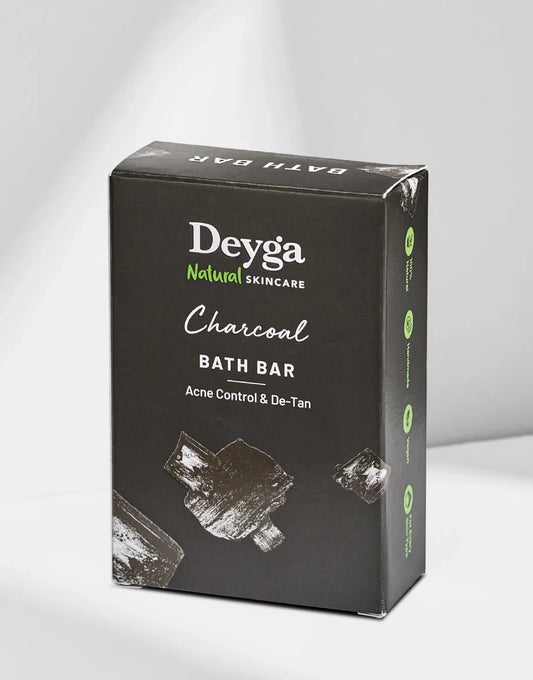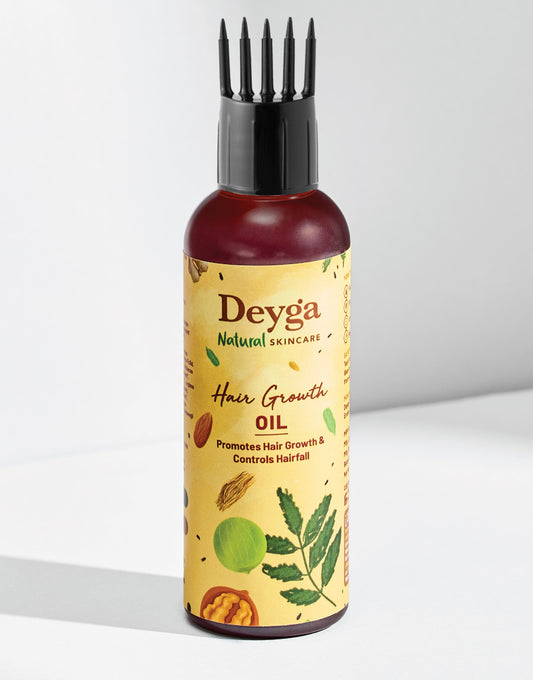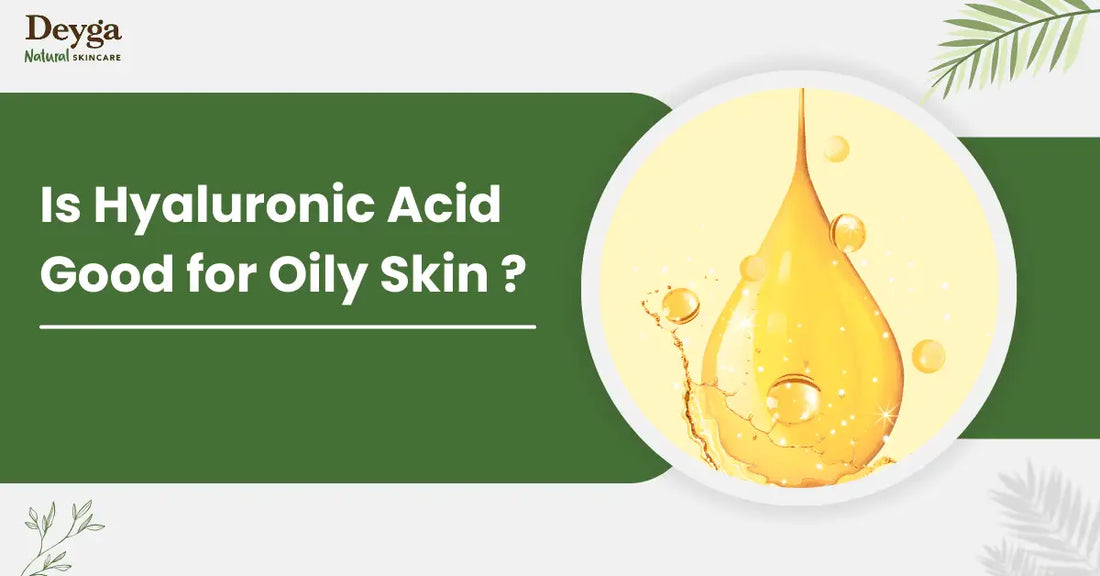Having oily skin is a biggest challenge today, considering its effects like excess shine, clogged pores, and breakouts all day. People with oily skin generally skip moisturizer, because they may feel greasy and will cause acne. But the real problem now will be skipping hydration. So, what’s next? How to keep skin hydrated if you have oily skin? The answer is picking the right product which hydrates the skin. One such booming product is Hyaluronic Acid.
And now the common question arises is “Is hyaluronic acid good for oily skin?”. They are a powerful hydrating agent, which moisturizes yet keeps skin non-greasy. Here, let me know in detail about the benefits and right way to incorporate.
Is Hyaluronic Acid Good for Oily Skin?
Yes, obviously. They are a game changer for oily skin folks. Just like creams and oils, they enhance your level of hydration in skin without making skin greasy. People with oily skin should never miss using moisturizer, because hydration is a key for healthy and glowing skin. When you skip moisturizer, sebum production will be more to compensate which leads to too much of shine and breakouts. And at the same time, when you use moisturizer, they also have a set of problems. So, the answer lies in choosing the face care product which is used to hydrate and moisturize the skin.

So, incorporating hyaluronic acid in your skincare can help in moisturizing the skin without making them greasy, strengthen the skin barrier, and improve the overall texture of the skin.
Why Oily Skin Still Needs Hydration
It’s a myth that oily skin does not need moisturization. Oily skin does not mean moisturized skin. Oil refers to the sebaceous glands, while hydration refers to the water level in the skin. Oily skin type also gets dehydrated when skin is not moisturized properly. In general, all skin type people should use a moisturizer to hydrate skin.
Get your hands on hydrated moisturizer or serum, which is non-sticky, light-weight, and yet keeps skin healthy.
How Hyaluronic Acid Works on Oily Skin
Hyaluronic acid is one of the lightweight humectants, which attracts and holds the water into the surface of the skin. It is stated that, “Just 1gm of hyaluronic acid, can hold up-to 1lt of water. It is one of the most effective hydrating agents in skincare.
If you are someone with oily skin, the level of hydration here comes without feeling heavy. Instead of adding heavy creams and oil, incorporating hyaluronic acid, should be a must in skincare routine helps in regulating the excess sebum production.
Benefits of Hyaluronic Acid for Oily Skin
-
Hydrates without Heaviness – Helps in hydrating skin deeply without clogging pores or making skin shining.
-
Balances Oil Secretion – Prevents excess sebum production, and helps in preventing the greasiness.
-
Soothes Acne-Prone Skin – Helps in lowering inflammation in the skin.
-
Strengthens Skin Barrier – Works on locking skin moisture and promotes skin barrier strengthening.
-
Improves Skin Texture – Helps in plump and smooth skin.
How to Use Hyaluronic Acid the Right Way
While using hyaluronic acid serum, ensure to apply them on damp skin, and not wet skin. Here is a step-by-step procedure:
Cleanse your skin with gentle cleanser to remove dust and dirt in the skin. Pick a face wash that hydrates and keeps skin healthy.

Use a hydrating mist/toner, which helps in keeping the skin damp.
Take a few drops of hyaluronic serum or creams into your palms, and gently pat them on your face and neck evenly.
Follow with a moisturizer based on your skin type.
You can start only a day, and then gradually use them in both AM and PM routine

Best Formulations for Oily Skin
If you want to start incorporating hyaluronic acid in your routine, the formulation and texture should suit your skin type.
Skin Serum - This is generally water-based, and they are most effective since they absorb faster into the skin.
Gels - They are water-based and give concentrated hydration which is light in texture.
Oil-Free - Double check if your concentrate is completely oil-free and non-comedegenic.
Start Slow - Never go with 5% and above. Start with 1% and gradually increase.
No to Thick Creams - Never use thick creams since they worsen breakouts for oily skin.
Combining Hyaluronic Acid with Other Ingredients
They play well with most ingredients since they are hydrating and versatile. Perfectly suits for oily skin-type folks.
If you have oily skin, then mix-and-match hyaluronic acid with:
Niacinamide – When mixed withHA, works on balancing oil and strengthens skin barrier.
Salicylic Acid – When mixed with hyaluronic serum, keeps skin free from dryness and clears skin.
Vitamin C – When combined, gives brighter skin and protects from free radicals.
Retinol – Works on reducing the irritation and flakiness on skin.
Who Should Avoid Hyaluronic Acid?
Hyaluronic acid is one of the safest skincare for 20s, 30s, and above; Which suits oily and sensitive skin. Some of them who should avoid includes:

Fungal Acne - Since some HA is blended with fatty alcohols, they may aggravate fungal acne.
Allergic Reactions - This is completely rare, but will experience redness and itchiness.
Dry Skin without Moisturizer - Since the climate is very dry, HA should be layered properly, else with dehydrated skin.
Conclusion
Hyaluronic acid is one of the safe ingredients which helps in keeping skin balanced and healthy.
With proper layering, they help in preventing dehydration by supporting better skin barrier and soothes active pimples and acne-prone skin.
You can use any water-based serum or gel, apply on damp skin, and never miss sealing them with moisturizer.
FAQs
Can hyaluronic acid make oily skin worse?
Hyaluronic acid is a light-weight molecule, which means they don’t make skin oily.
Should people with acne-prone oily skin use hyaluronic acid daily?
Yes, they can use them since they hydrate and moisturize skin without any irritation.
What is the best time to apply hyaluronic acid if you have oily skin?
If you are a beginner, use it once a day. Or you can use them in the AM and PM routine.
Do I still need moisturizer if I use hyaluronic acid on oily skin?
Yes, a moisturizer is a must irrespective of what products you are using. If you skin, your skin will be dehydrated.
Can hyaluronic acid reduce oil production in the skin?
Yes, but in-directly. Using HA helps in keeping skin hydrated, while preventing excess sebum production.
How long does it take to see results from hyaluronic acid on oily skin?
If you use them consistently, you can see visible results in 2 to 5 weeks.
Which is better for oily skin: hyaluronic acid serum or gel cream?
A water-based serum works better without greasiness or heaviness. While using gel-based creams, they suit humid climates.
Can hyaluronic acid clog pores or cause breakouts?
No, they don’t clog pores or cause breakouts, since they are non-comedogenic and light in texture.
Is it safe to combine hyaluronic acid with salicylic acid for oily skin?
Yes, hyaluronic acid and salicylic acid is one of the best combinations for oily skin.
What concentration of hyaluronic acid is best suited for oily skin?
If you are a beginner, you can start with 1% to 2%. They can slowly increase.

